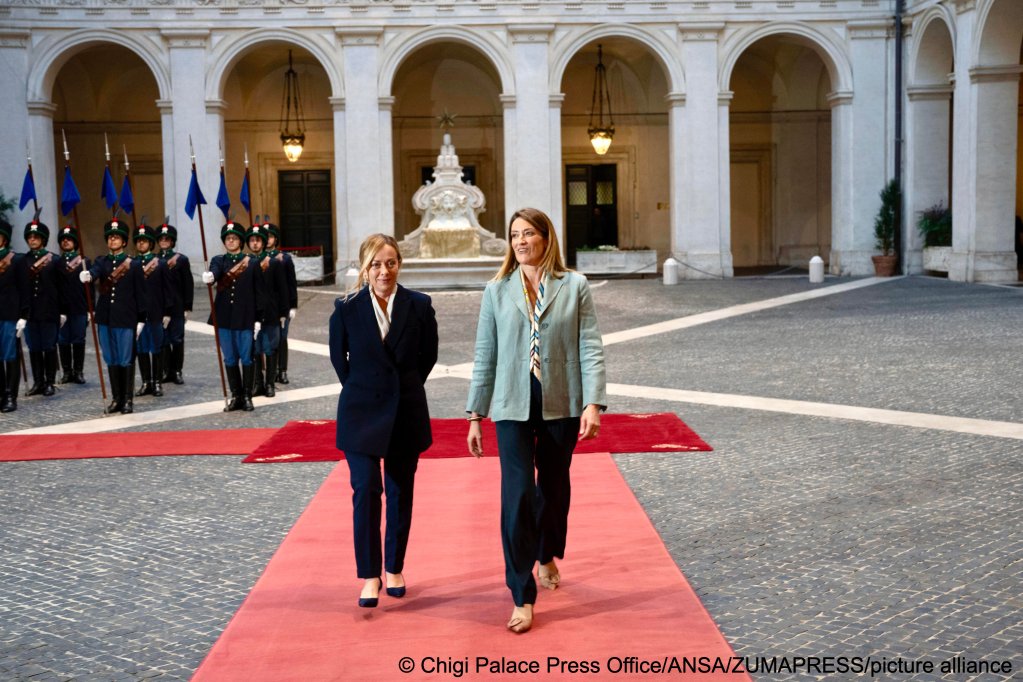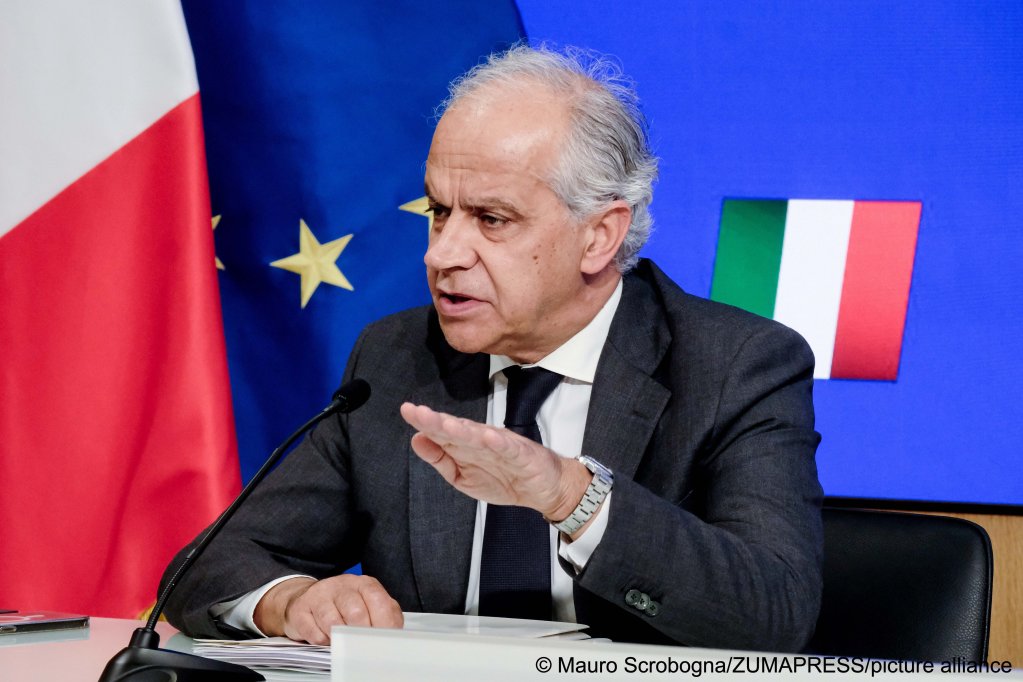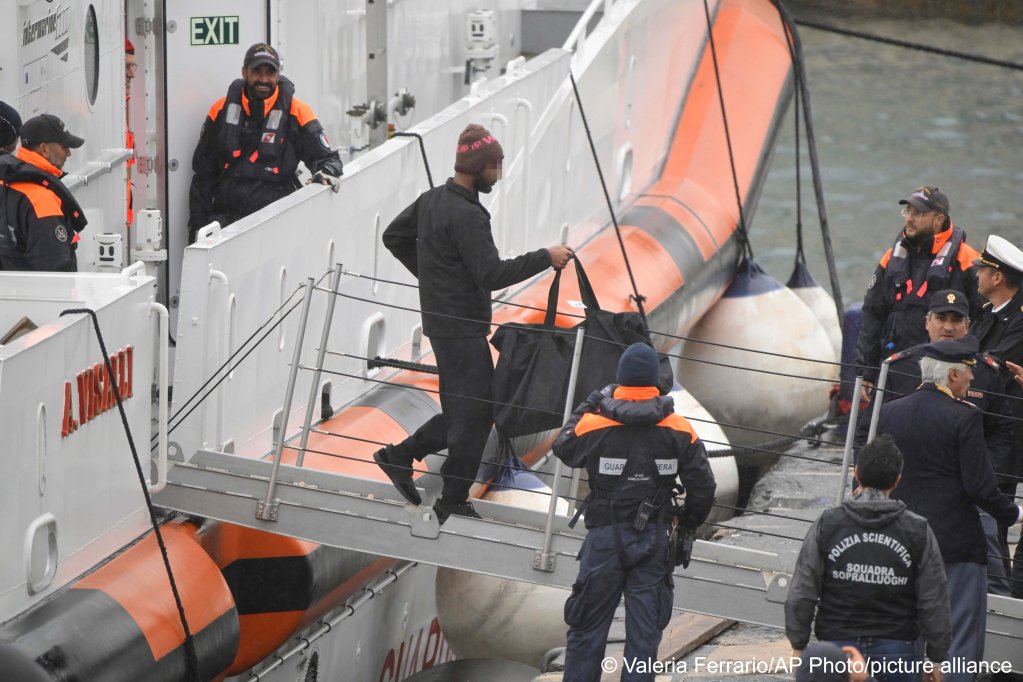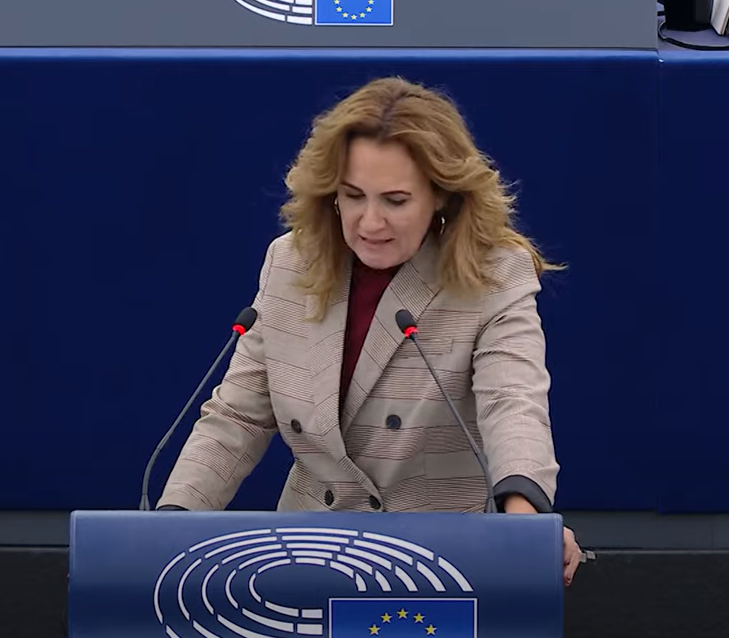The Italian government's plan to process asylum seekers in Albania has hit a stumbling block. The government insists it will go ahead anyway despite legal challenges and criticism from both opposition parties in Italy and the wider EU.
On October 18, Rome's special immigration unit tribunal found that the remaining 12 migrants that Italy had sent to Albania two days prior could not be detained in the new centers and had a right to return to Italy to have their cases heard.
Despite the legal stumbling block, Italy’s Prime Minister Giorgia Meloni claims its Albania plan is in step with European policy and is determined to get it up and running again. Criticism is mounting from opposition politicians, European officials, and judicial experts.
Can the Albanian system really work?

Decree 'effective immediately'
Following the court ruling, Meloni’s government passed a decree on "safe" countries in the cabinet on October 21 which entailed a newly updated list of 19 countries deemed safe by Italy for repatriation. With the decree, the list will have the force of law, creating an obligation to adhere to it. If on the list, countries are "safe" without exception.
This has echoes of the former Conservative British government’s attempts to pass a law declaring Rwanda safe "without exception," in order to circumvent a Supreme Court ruling that declared that it would be illegal to assume that anyone could be sent to Rwanda safely.
Meloni's decree, which was said to be "effective immediately", is seen as a way to head off further legal challenges regarding sending migrants to Albania to process their asylum claims. It is expected to pass the Italian parliament, where the government holds a majority.
Lawyer Lucia Gennari, an associate of the Italian Association for Juridical Studies on Immigration (ASGI), explained to InfoMigrants that: "To us, the passing of this decree seems to be less about substantially changing things, from a legal perspective, and more about signaling that if there is a decision in the future where a judge rules that the person who comes from a country on the list should have their asylum claim heard anyway, they can accuse the courts of being politicized and trying to interfere with the policies of government."
However, Gennari pointed out that the decree might be overruled on a European level. "It is very likely that there will be a second [European] decision that will exclude the possibility of considering a country safe when there are exceptions for certain categories of people. We have for example Bangladesh, which has a lot of exempted categories of people," she told InfoMigrants.
ASGI published a document on Thursday (October 24), outlining a list of exceptions that judges should consider when evaluating cases related to processing asylum seekers in Albania. ASGI believes that European law -- which typically takes precedence over conflicting national laws -- and Italian precedents indicate that, under current legislation, it will be difficult to proceed with the plan legally.
Read AlsoItaly: What next for the government's Albania plan?

Government claims its decree 'provides stability'
Italian Interior Minister Matteo Piantedosi told Corriere della Sera last week that "We believe we have established a list of 'safe countries' now and that should provide added stability when applying these important procedures."
Piantedosi also underlined that the procedures for speeding up returns in Italy is exactly what is contained in Europe’s new pact for migration and asylum.
He notes that the new European rules, which should be effective from June 2026, will make it obligatory to apply accelerated procedures at the border. It will also use similar criteria regarding "safe countries".
"When the European rules enter into force, they should really reinforce our capacity to fight against human trafficking, without limiting the right to asylum," says Piantedosi. He adds that this will "complete the policies our government is already pursuing that have allowed us to reduce the number of arrivals this year by 61 percent in respect to 2023 and by 29 percent in respect to 2022."
Raising the numbers of returns, insists Piantedosi, "is a task assigned to us by Europe. It is also something the Italian public is expecting of us."
Read Also
Italy's migrant processing center in Albania to welcome first arrivals
Appeal at Rome's highest court
Nevertheless, on Tuesday (October 22), Piantedosi announced he was preparing an appeal against the sentence made by Rome’s tribunal that ruled that the 12 remaining asylum seekers in Albania would have to be returned to Italy.
"I respect judges," Piantedosi said in a press conference, "but I am prepared to take our battle to the very top of the judicial process."
Gennari told InfoMigrants that "if the appeal court found that the Rome tribunal was wrong, they can establish a principle for future decisions about detaining people." For now, "the Rome Tribunal’s decision will stand, because the people were brought to Italy, and they cannot be returned to Albania. But because the state has appealed, the supreme court (Corte di Cassazione ) can overturn that decision," she said.
The short stay of the group of 16 asylum seekers in Albania, with a two-day voyage from Italy to Albania each way is estimated to have cost around 20,000 euros per migrant, reported Rai. The total costs of the Albania plan are estimated to be around a billion euros over five years. Italy hoped to process up to 3,000 migrants per month at these centers.
When asked if the same investment wouldn’t have been better used investing in centers in points of departure, like Tunisia, Piantedosi replied: "Creating centers in Albania doesn’t rule out creating centers elsewhere, but to create the centers, you need the host state to be open to the possibility."
The minister also insists that "when the system is up and running properly, the deterrent effect it will have, will allow us to make significant savings on reception costs," reported Corriere della Sera.
Read AlsoMigrants transferred from Albania to Bari 'scared, in shock'

Opposition demands to be consulted
Opposition parties in Italy have all called on the government to stop passing decrees and start consulting parliament if it wants to change the law.
The head of the Democratic Party (PD) in parliament, Chiara Braga, called Meloni’s decree "a ghost decree, that even some of the members of the government haven’t been able to read."
Braga declared that the government needed to "come to parliament and tell us not what their Albanian model is about, but about the failure of their Albania model."
MEPs also express reservations regarding Albania plan
On Wednesday (October 23), during a debate in the European Parliament, the left-wing Spanish MEP Estrella Galan Perez criticized Italy’s agreement with Albania, likening it to building concentration camps in Europe. Her speech was broadcast on EU Debates TV, which bills itself as a European initiative to promote debate, dialog and communication among citizens for a better Europe.
"The agreement between Italy and Albania violates access to the right to asylum and international law and breaches the principle of non-refoulement," said Galan Perez. She called the idea of sending asylum seekers and migrants to neighboring countries "illegal, immoral and inhumane." Galan Perez added, "Building prisons for refugees in Europe is barbaric."
Other MEPs views during the debate were also quoted in the summary page of EU Debates TV. Fellow MEP, Ana Catarina Mendes (part of the Progressive Alliance of Socialists and Democrats) called the Albania solution "worrying," and said it should remind MEPs "not to remain silent."
A French MEP Fabienne Keller, from the Renew Europe faction of the parliament and a member of Macron’s Renaissance (rebirth) party, declared she was "firmly against so-called innovative solutions, such as externalization of the returns policy in hubs, which are far from our countries."

'A threat to human rights'
An Italian MEP Cecilia Strada from the Democratic party (PD), so in opposition to the current government, said that Rome’s deal with Tirana was "a threat to human rights" and would harm European economies.
Strada went on to say that she felt "centers in Albania are a logistical nightmare, a legal disaster, a threat to human rights, and a significant cost."
The MEPs weren’t just debating Italy’s attempts to process asylum seekers in Albania, but also European Commission President Ursula von der Leyen’s calls for "innovative solutions" to try and prevent so many migrants from arriving in the bloc.
One of those so-called innovative solutions was to create return hubs outside the bloc, so that the EU could detain anyone who had their asylum claim rejected before deporting them more quickly.
Spain’s socialist-led government has been one of the few in Europe to voice opposition to a general move to the right with regard to migration policy. Iratxe García Pérez, chair of the Socialists and Democrats in the European Parliament called on von der Leyen to "abandon her inhumane and illegal proposal to create deportation centers in third countries, because it is unacceptable to bend to the extreme right to endorse a migration model that violates human rights."
Read AlsoItalian judge gets 'death threats' over Albania centers case
